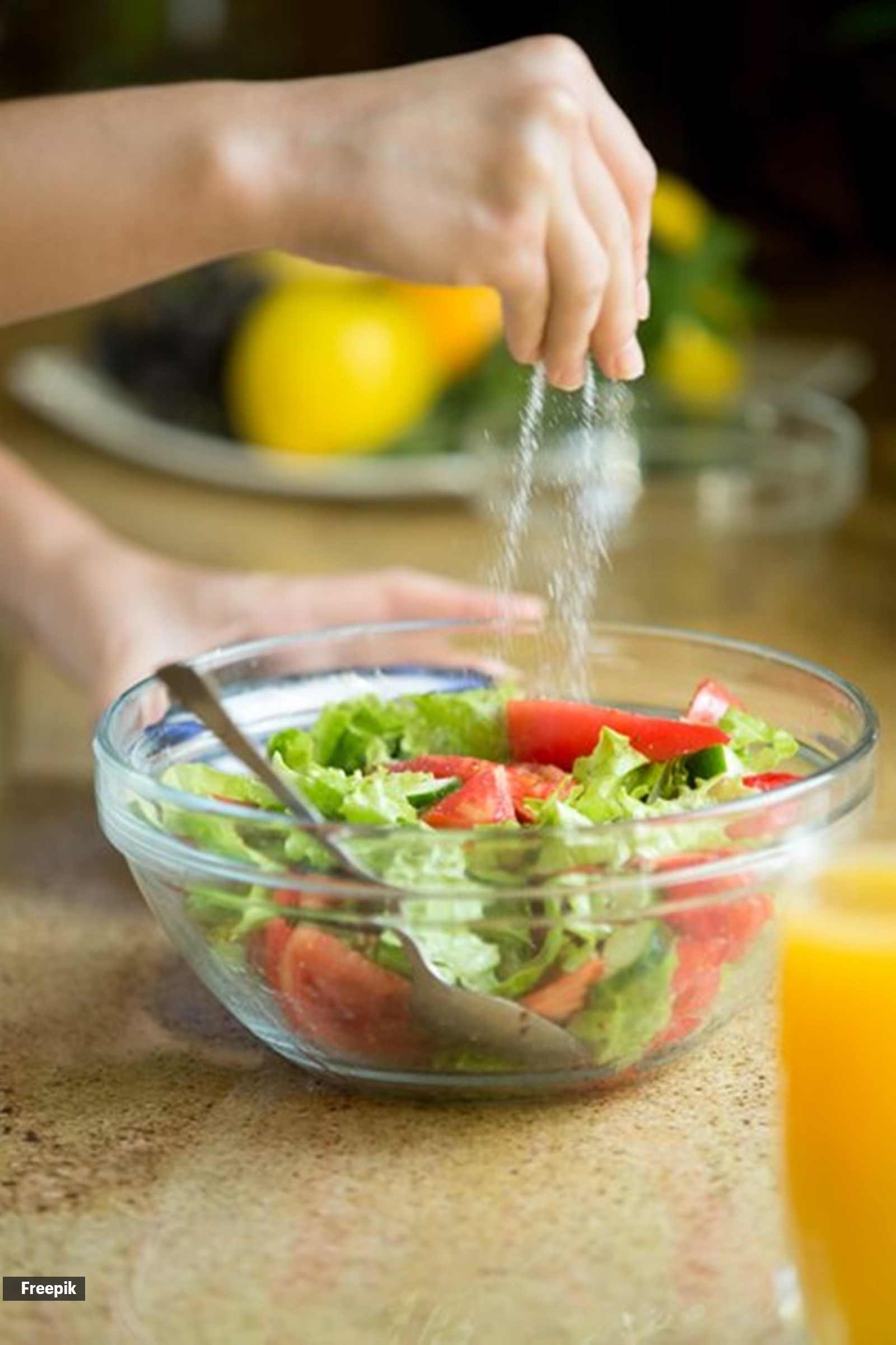Do you like to sprinkle salt in your food after it is cooked for added taste? Well, we’ve some bad news for you. Researchers and experts caution that you might be increasing the risk of developing type-2 diabetes by doing so. Yes, you read that right. Not sugar alone, but salt too can hamper your blood sugar levels.
While table salt contains sodium chloride that is an essential mineral, serving many key functions like maintaining fluid balance, regulating nerves, muscle and cardiac function, most of us are aware that high salt intake can be a risk for hypertension or cardiovascular diseases.
Now, new evidence has emerged that there is a causal link between excess salt consumption and type-2 diabetes. Dr Avinash Phadke, president and mentor, Agilus Diagnostics tells indianexpress.com that frequent salt intake can lead to fluid retention, which complicates diabetes management by impacting cardiac and renal functions — key areas already vulnerable in diabetic patients.
Advertisement
Similarly, Dr Dheeraj Kapoor, chief- endocrinology, Artemis Hospital, Gurugram points out that high sodium levels can activate the renin-angiotensin-aldosterone system, causing inflammation and oxidative stress, which significantly contributes to diabetes risk. “Furthermore, a diet high in sodium often goes hand in hand with the consumption of processed and high-calorie foods, which can alone increase the risk of diabetes because of their impact on obesity and metabolic health.”
The American Diabetes Association recommends that people with diabetes limit their sodium intake to 2,300 milligrams (mg) per day. “This is equal to about 1 teaspoon of table salt,” Dr Rakesh Kumar Prasad, consultant – endocrinology, Fortis Hospital, Noida, noted, adding that it is recommended that people with diabetes eat even less salt, especially if they have high blood pressure or kidney damage.

New research done by Tulane University and published in Mayo Clinic Proceedings concurs with the above. A comprehensive survey of more than 4,00,000 adults registered in the UK Biobank over a period of 11.8 years showed that people who ‘sometimes’, ‘usually’ or ‘always’ added salt to their meals had an associated 13%, 20% and 39% higher likelihood of developing type 2 diabetes, as opposed to those who ‘never’ or ‘rarely’ used salt.
Explaining the findings of the study, Dr Lu Qi, lead author and chair at Tulane University School of Public Health and Tropical Medicine said in a statement that for the first time a study demonstrates that removing the saltshaker from the table can play a role in preventing type-2 diabetes.
Advertisement
Although the exact processes connecting excessive salt intake to a heightened risk of type 2 diabetes need more research, Dr. Qi proposes that salt could potentially drive individuals to consume larger meal portions, thus increasing the likelihood of developing risk factors such as obesity and inflammation.
The research found a connection between regular salt consumption and an elevated body mass index (BMI) as well as a larger waist-to-hip ratio.
Meanwhile, Dr Phadke shared that people trying to manage diabetes may be more affected by excessive salt intake. Here is how:
Advertisement
 Removing the saltshaker from the table can play a role in preventing type-2 diabetes. (Source: Freepik)
Removing the saltshaker from the table can play a role in preventing type-2 diabetes. (Source: Freepik)
*Elevated blood pressure: As salt consumption increases, so does the risk of hypertension. Given that many diabetics concurrently struggle with high blood pressure, this exacerbates an already existing condition, making management more complex.
*Cardiac strain: With increased sodium levels, there’s a higher blood volume circulating, which puts additional strain on the heart and blood vessels. This is particularly risky for those with diabetes, as they’re already at a higher predisposition for cardiac ailments.
*Renal health: Diabetes can compromise kidney function, and high salt intake can accelerate the decline, potentially hastening the progression to diabetic kidney disease.
*Weight management and metabolic control: While salt doesn’t directly affect glucose levels, high-salt diets are frequently calorie-rich and can contribute to weight gain, thereby indirectly influencing blood sugar regulation.
While Dr Qi recommends people to proactively seek out low-sodium alternatives to season their favourite dishes, Dr Phadke suggests the following measures:
Advertisement
*Educate and empower: Patients need to understand the consequences of high salt intake. Education should emphasise the hidden sources of salt in the diet and the importance of moderation.
*Diet modification: Encourage the consumption of fresh, unprocessed foods that are naturally low in sodium. Advocate for flavour enhancement using herbs and spices in place of salt to mitigate the risk of hypertension and related complications.
Advertisement
*Smart shopping: Teach diabetics patients to become savvy label readers, identifying low-sodium options and understanding portion sizes.
*Home cooking: Encourage the preparation of meals at home, which allows for complete control over the amount of salt used.
Most Read
Advertisement
*Handling canned goods: Opt for ‘no salt added’ versions or thoroughly rinse foods to remove excess sodium.
So, next time you reach for the saltshaker, remember that it’s not just a pinch of flavour; it might be a risk for your blood sugar levels.
📣 For more lifestyle news, follow us on Instagram | Twitter | Facebook and don’t miss out on the latest updates!
"ingredients" - Google News
November 03, 2023 at 05:15PM
https://ift.tt/OSpAvV9
This daily food ingredient can raise your risk of type-2 diabetes (hint: it’s not sugar) - The Indian Express
"ingredients" - Google News
https://ift.tt/KiQ28HC
Shoes Man Tutorial
Pos News Update
Meme Update
Korean Entertainment News
Japan News Update
Bagikan Berita Ini














0 Response to "This daily food ingredient can raise your risk of type-2 diabetes (hint: it’s not sugar) - The Indian Express"
Post a Comment